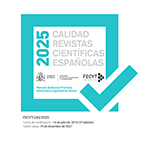Accueil scolaire des immigrés non francophones dans le cycle secondaire en Communauté française de Belgique : enseignements d’une recherche-formation
Abstract
This article highlights the methodology and findings of four years of research-training undertaken by students of the University of Liège (Belgium) within the framework of a class called “Problematic of immigrants confronted to the learning of French” (Master’s Degree “French As a Foreign and Second Language”) under the supervision of Altay Manço. The work done by the students led to a better understanding of the social-cultural context of young newly arrived immigrants who do not speak French, in schools of the Frenchspeaking regions of Belgium. The practices that led both teachers and students alike to succeed in terms of academic performance and integration are described in both qualitative and quantitative terms. The exercise also establishes specific policy and pedagogical recommendations. The objective of the research-training was to introduce students and future teachers of French as a foreign or second language (FLES ) to the challenges of integrating immigrant students who do not speak French, the medium of instruction. This paper represents a synthesis and builds upon the learnings of several related studies. It was written with the contribution of an external evaluator (Aude Harou) and allows us to complete and generalize the scope of local observation. The article begins with an introduction presenting an overview of the performance of first and second-generation immigrant students in Belgium based on the international study of the Programme of Student International Assessment (PISA), and the organizational and legislative context in which newly-arrived immigrants integrate into the educational system. Next, observations and analysis are presented, relating to (i) the personal experiences of young immigrants in secondary schools, focusing on the specific case of non-accompanied immigrant minors (“MENA”), (ii) the integration of incoming immigrant students in schools and (iii) the perspective of FLES teachers, which lead to pedagogical and policy recommendations.En español: El presente artículo detalla la metodología y los resultados de una investigación-formación de 4 años llevada a cabo por estudiantes de la Universidad de Liega (Bélgica) dentro del marco de una asignatura llamada “Problemática de inmigrantes confrontados al aprendizaje del Francés” (Programa Master’s “Francés Como Idioma Segundo e Extranjero”) bajo la supervisión de Altay Manço. El trabajo realizado por los estudiantes ha permitido llegar a un mejor entendimiento del contexto socio-cultural de inmigrantes jóvenes recién llegados quienes no hablan francés, en escuelas de la región franco-hablante de Bélgica. Las prácticas que llevaron tanto los profesores como los estudiantes al éxito, del punto de vista académico y de la integración, están descritas en términos cualitativos y cuantitativos. El ejercicio también lleva a recomendaciones específicas de políticas educativas y pedagógicas. El objetivo de la investigación-formación ha sido de exponer los estudiantes y futuros profesores de francés como idioma segundo e extranjero (“FLES”) a los retos de la integración de estudiantes inmigrantes quienes no hablan el francés, idioma base de enseñanza. El presente artículo representa una síntesis y es basado en lo aprendido en varios otros estudios relacionados. Ha sido realizado con la contribución de un evaluador externo (Aude Harou) y permite completar y generalizar el alcance de las observaciones localizadas. El artículo incluye en su introducción un resumen de la performance de estudiantes inmigrantes de primera y segunda generación en Bélgica basado en el estudio internacional PISA, así como el contexto organizacional y legislativo bajo el cual inmigrantes recién llegados son integrados en el sistema educativo. Posteriormente, son presentadas e analizadas las observaciones relacionadas a (i) las experiencias personales de joven inmigrantes en escuelas secundarias, enfocando en los casos específicos de inmigrantes menores de edad no-acompañados (“MENA”), (ii) la integración escolar de inmigrantes recién llegados y (iii) la perspectiva de profesores de FLES desembocando en recomendaciones prácticas de políticas educativas y pedagógicas.
Downloads
Article download
License
In order to support the global exchange of knowledge, the journal Didáctica. Lengua y Literatura is allowing unrestricted access to its content as from its publication in this electronic edition, and as such it is an open-access journal. The originals published in this journal are the property of the Complutense University of Madrid and any reproduction thereof in full or in part must cite the source. All content is distributed under a Creative Commons Attribution 4.0 use and distribution licence (CC BY 4.0). This circumstance must be expressly stated in these terms where necessary. You can view the summary and the complete legal text of the licence.










